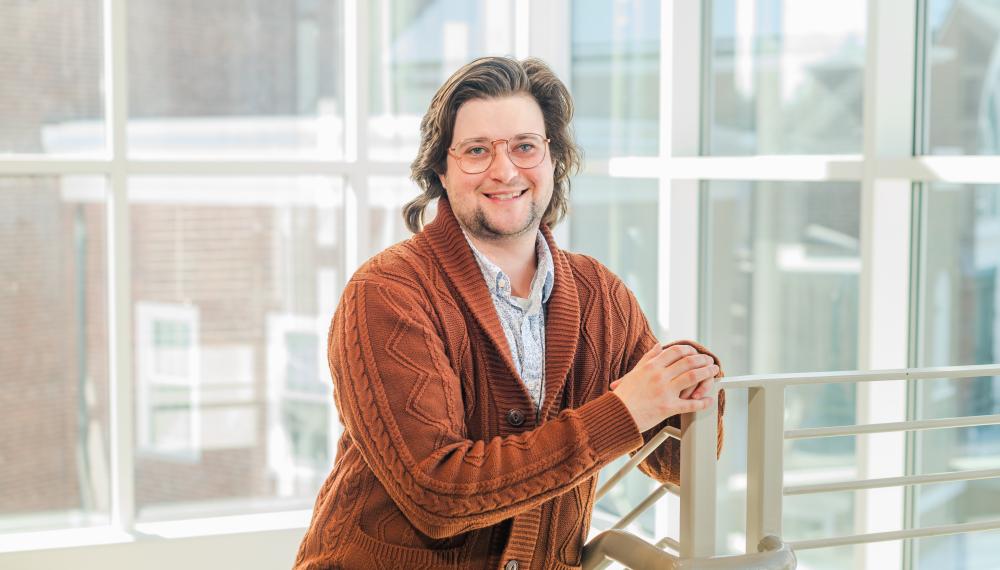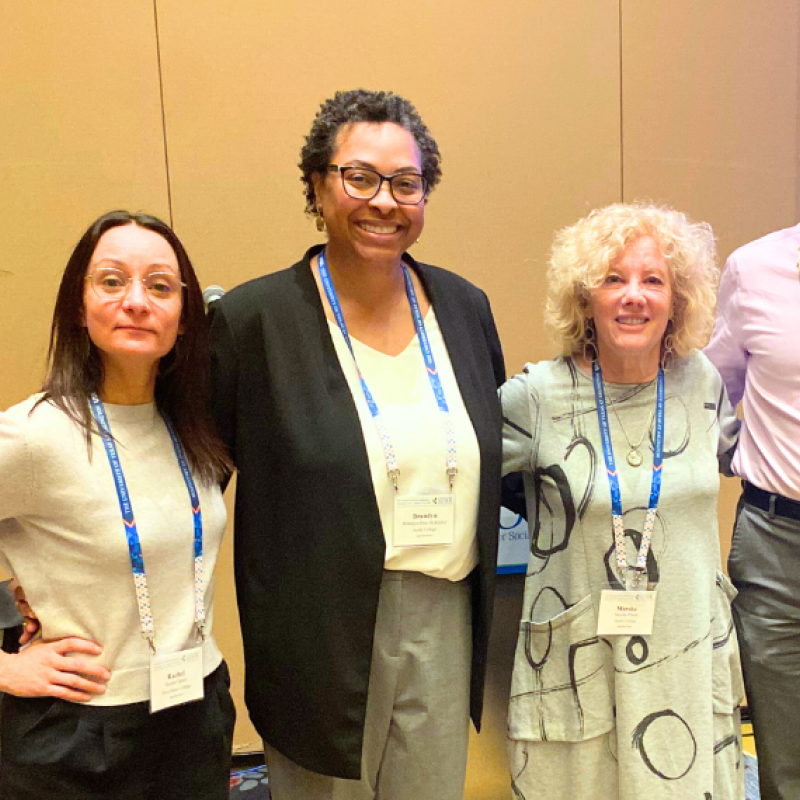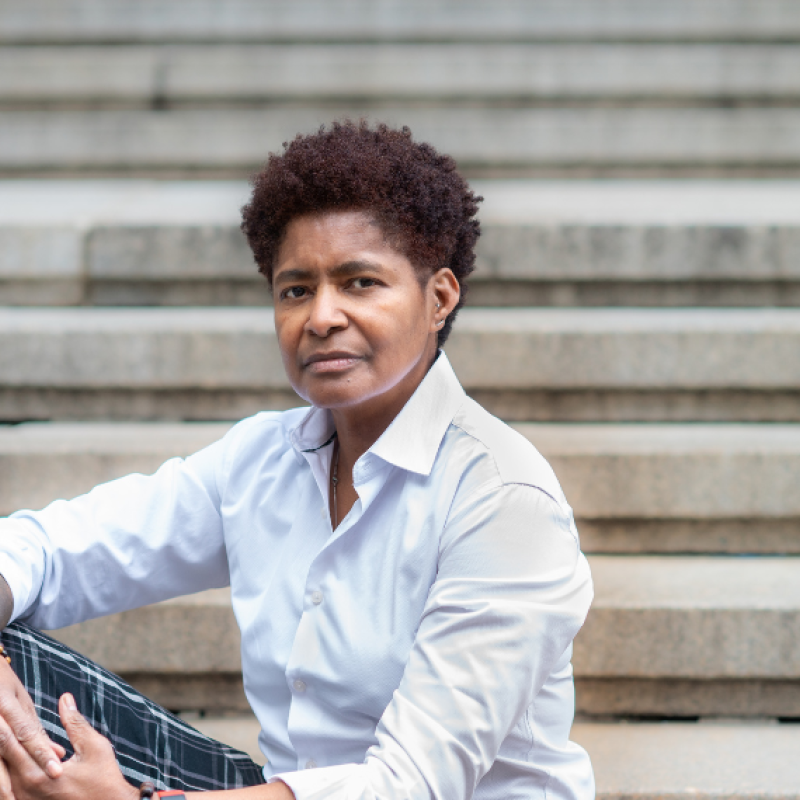
During his two internships as an M.S.W. student at the Smith College School for Social Work, Cyril Slemaker – who graduates after this upcoming summer term – has become a fixture on the college campus. He completed his first-year placement at the Office of Disability Services, where he helped connect students with accommodations. And he is currently interning at the Schacht Center, the college’s on-campus counseling facility. There, he meets with four to five clients daily in addition to writing the notes and attending the meetings that undergird the day-to-day work of a practicing therapist.
He opted to do both placements at the college because it cultivates an environment that makes Slemaker, who identifies as trans and as someone living with a vision-related disability, feel considered and comfortable.
“I want to be able to be my whole self in a space, and I know I can do that at Smith,” he said.
Those identities shape both his daily existence and his clinical practice. He carpools to campus with a fellow intern because, unable to drive, he would otherwise need to walk or pay for a ride there. Once at work, Slemaker conducts therapy that focuses on the client’s voice; he cannot rely on reading facial expressions and nuanced body language, two indicators of emotional status emphasized throughout most clinical training.
“For me, therapy is verbal more than it’s anything else,” he said. “I’m listening, I'm hearing the speech. Those things tell me way more than a small expression, because it’s not available to me.” That adaptation works especially well for neurodivergent clients who prefer to avoid eye contact, he said, the sort of unexpected benefit often revealed when fields are reimagined to allow more kinds of people into them.
“I want to be able to be my whole self in a space, and I know I can do that at Smith.”
"I'm really lucky that I never fit properly into the mold of expectations that people had of me, because there is a kind of freedom to being like ‘this is how I am in the world, and I can’t change it,’” he said.
Before entering social work, Slemaker spent seven years as a classroom teacher, where he began to notice the myriad ways that students with multiple vulnerabilities slipped through the cracks – and how he was rarely in a position to help change those circumstances.
“It would break my heart to see the way that the intersection of multiple marginalized identities was blatantly impacting the way students were able to navigate through the education system,” he said.
When he realized his desire to move away from teaching, he began to think about what drew him to education in the first place: it was the aspects of the job that most mirrored the practice of social work.
“I was able to connect students with resources; I was able to connect families with resources and also bear witness,” he said. Now, he does this in his fledgling clinical practice, and he plans to continue the work after graduation.
“I’d like to bring more disability justice to therapy. I think we’d all benefit,” Slemaker said.
At the end of his workday, Slemaker carpools home and then relaxes by doing art, like drawing or crochet. “I think it’s really important to wind down and just have as few thoughts as possible” to recharge for another day of clinical work, he said. This knowledge about how to care for himself has been part of his social work education, helping him preserve the bandwidth to show up daily for others.
“Going to social work school has really changed my life. It’s opened up an understanding of myself,” he said. “There’s a focus on who you are in the space and how you are interacting and what you’re bringing in that impacts the way you're able to connect with other people.”


